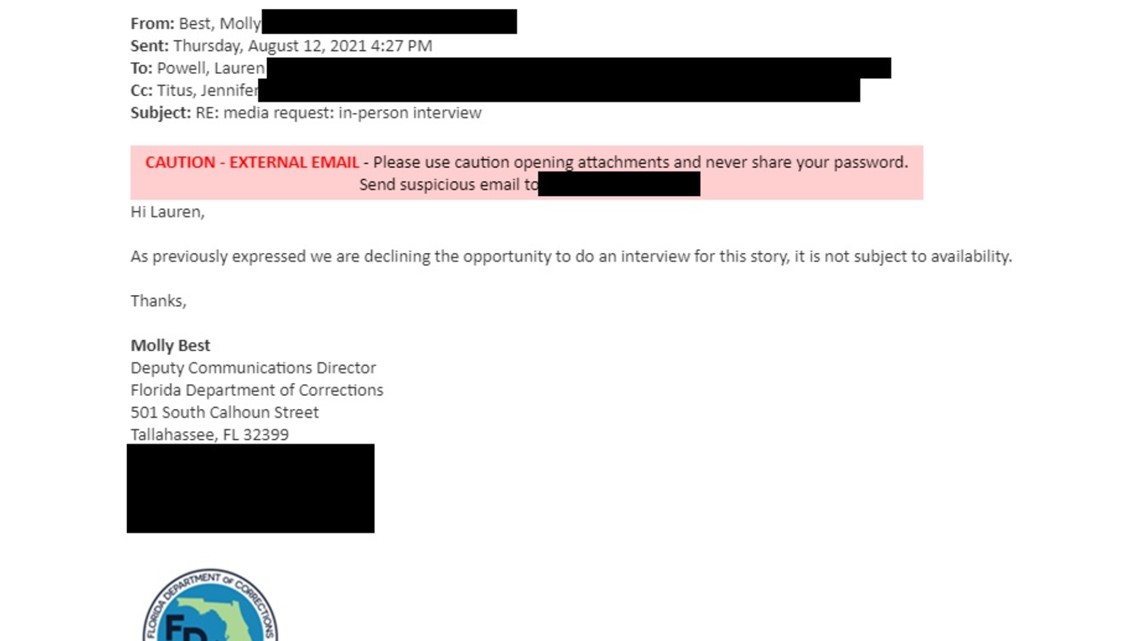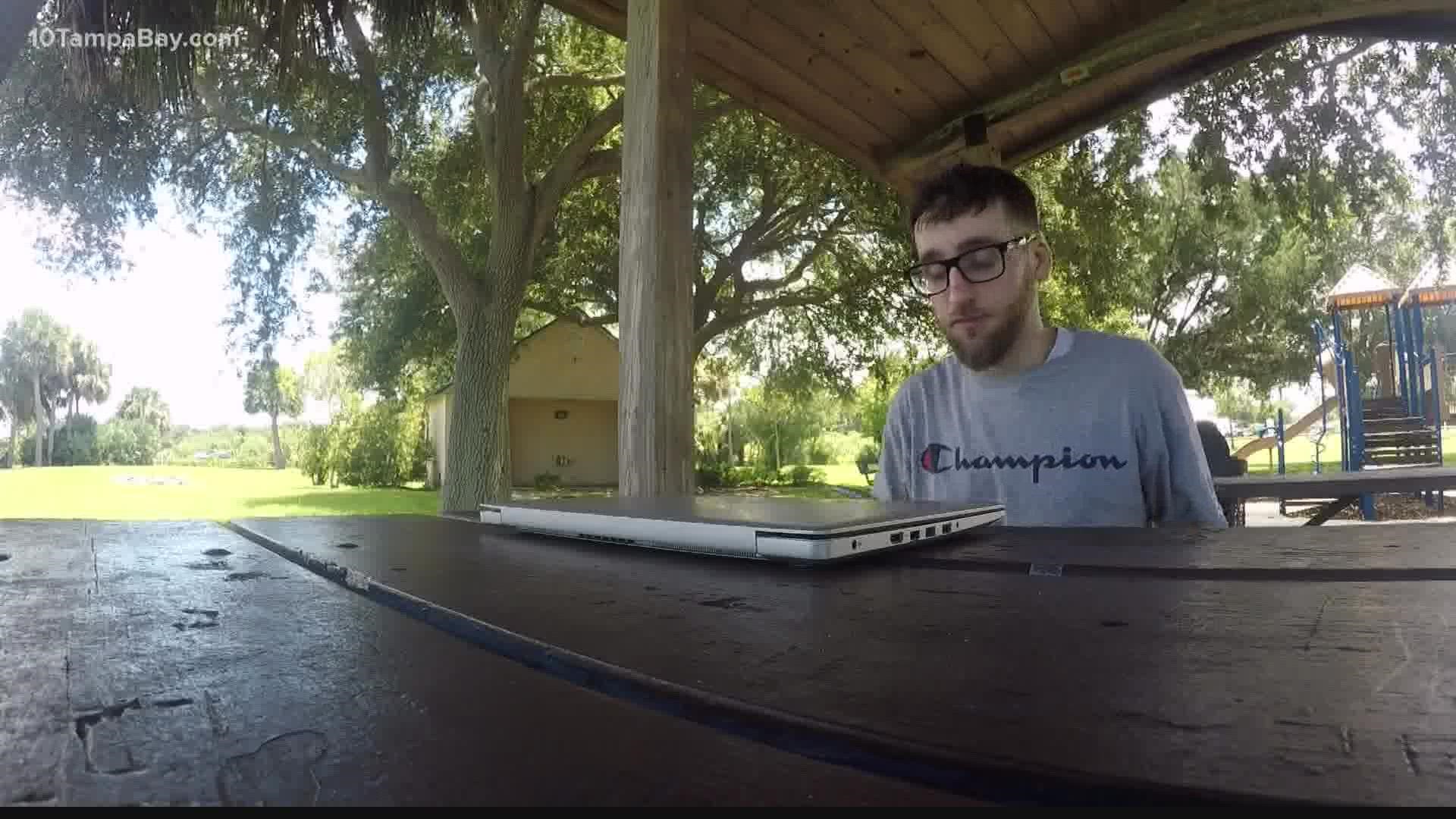TAMPA, Fla. — Months after 10 Investigates uncovered inmates were making robocalls, the head of the Florida Department of Corrections still doesn't want to talk about it.
But we found a way for you to fight back against robocallers and help as part of our nationwide “Stop the Call" initiative.
Millions of robocalls go out every day. When 10 Investigates first learned Florida inmates were part of the calls, we wanted answers.
We've tried for months to get the head of the Department of Corrections to talk to us. We sat outside his office and called and emailed him regularly for months.
In the office's most recent response, his communications staff wrote: "We are declining the opportunity to do an interview for this story, it is not subject to availability."


While they are refusing to tell us what they are doing to crack down on these calls, we've learned you can crack down yourself.
Adam Ward is doing just that, and he's made thousands of dollars doing it. He's paid off his credit cards and is already making plans for his next big purchase.
"I've been wanting to get a new car for a while," Ward explained to 10 Investigates' Jennifer Titus.
And that new purchase may be coming sooner rather than later.
"I should be settling another this week for between $8,000 and $10,000,"
Ward said.
So far, Ward has made around $22,000. He says it all started because, like most of us, he is fed up with getting those annoying calls trying to sell him a car warranty.
"Had enough. Wanted to make them rethink it one day, hit them in the wallet make them make a pay," Ward said.
The "them" Ward is talking about are the companies behind those unwanted calls.
The Telephone Consumer Protection Act or TCPA of 1991 allows penalties each time a company violates the "National Do Not Call" registry, uses automatic dialing systems, or pre-recorded messages in an illegal manner.
The federal government uses the law to target harassing telemarketers in rare cases. But more importantly, the TCPA allows citizens to file lawsuits against telemarketers who may make tens of thousands of automated calls on any given day.
"It's just such an annoyance. The easiest thing is to just go to the website robocalls.cash," Doc Compton explained.
Compton came up with the idea and the "turning robocalls into cash" kit.
It costs $47 and includes a sample demand letter you send to the companies calling you, letting them know that they are breaking the law.
"Essentially, you have to take the call, you have to talk to the caller, get them to give you a little bit of information. The types of information that you're going to try and get out of the caller varies depending on the types of calls that you're getting, who it is that's calling, when they're calling and so on," Compton said.
"From there, use the template demand letters that we provide in the kit, it's basically fill in the blank, send it off. And believe it or not, these guys want to negotiate, they don't want to go to court."
10 Investigates uncovered consumers across the country cashing in from Houston to Seattle to right here in Tampa Bay.
"One day, I just checked my email, and I had an email from a lawyer for this one company, saying that they will give you $1,000. It was basically, hey we got your letter, we deny everything you said, but we're willing to give you $1,000 to settle this. And I was like I was game on," Ward said.
His first settlement ended with him receiving $3,000 from an extended warranty auto company.
He sent that first letter just last year. Ward says even though the state and federal governments are working to crack down on robocalls, it's still not enough.
"My phone number is registered with the do not call since 2005," Ward said. "The simple fact that you didn't scrub my number against the National Do Not Call Registry alone is $1,500 per call."
Compton says his ultimate goal is to put a stop to the calls altogether.
"I want everybody to be able to answer their phone and not have to silence every other call. Because it's somebody trying to sell them an auto warranty or health insurance or mortgage refinance, or whatever it is. That's the big picture for me. And I have a lot of people ask me, you know, if this works, aren't they eventually going to stop calling? And the answer is yes," Compton said.
Compton says if you do buy the kit, the first thing they'll tell you is to make sure you are registered on the "National Do Not Call" registry because that could mean more money in your pocket.
And, the calls you get that are not coming from an actual company won't pay out.
If you have any questions about the kit, Compton says you can reach him at support@robocalls.cash and you can find him on TikTok here.

